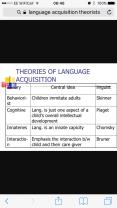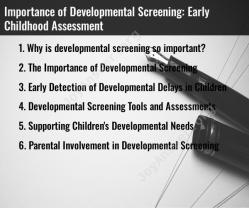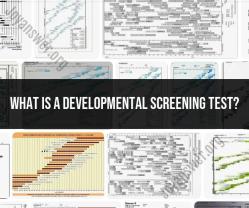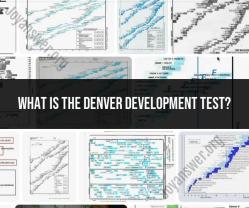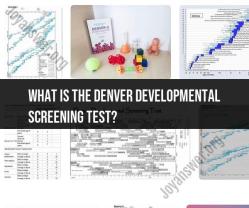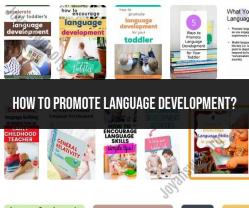What are some common language milestones?
Language development in children typically follows a set of common milestones as they grow and acquire language skills. These milestones can vary slightly from child to child, but they provide a general framework for tracking language development. Here are some common language milestones at various stages of a child's development:
Infancy (0-12 months):
- Crying and cooing in response to stimuli.
- Babbling with repetitive syllables (e.g., "bababa").
- Responding to their name.
- Making eye contact and imitating facial expressions.
- Recognizing the voices of caregivers.
Toddlerhood (12-24 months):
- Expanding vocabulary with the use of single words (e.g., "mama," "dada," "ball").
- Combining two words to form simple phrases (e.g., "more juice," "my toy").
- Following simple commands (e.g., "come here," "give me the ball").
- Pointing to objects of interest.
- Beginning to express basic needs and wants through words.
Preschool (2-4 years):
- Rapid expansion of vocabulary and language comprehension.
- Using sentences with more complexity.
- Asking and answering questions about familiar topics.
- Engaging in imaginative play and storytelling.
- Demonstrating improved grammar and sentence structure.
- Developing an understanding of basic concepts (e.g., colors, numbers, shapes).
Early School Age (5-7 years):
- Developing more advanced conversational skills.
- Using more complex and varied vocabulary.
- Engaging in conversations with peers and adults.
- Demonstrating better understanding of abstract concepts.
- Reading and writing skills continue to develop.
- Narrating events and experiences with coherence.
Middle Childhood (8-12 years):
- Expressing thoughts and opinions with increasing sophistication.
- Developing a broader and more nuanced vocabulary.
- Using appropriate grammar and syntax in written and spoken language.
- Reading and comprehending more complex texts.
- Engaging in persuasive and informative writing.
- Understanding figurative language (e.g., metaphors, idioms).
Adolescence (13+ years):
- Communicating with a high level of fluency and complexity.
- Developing critical thinking and argumentative skills in writing and speaking.
- Reading and comprehending advanced literature and academic texts.
- Acquiring and using specialized vocabulary in various subjects.
- Engaging in debates and discussions on complex topics.
- Demonstrating mature writing and public speaking abilities.
It's important to remember that these milestones provide a general guideline for typical language development, but there can be significant individual variation. Some children may reach these milestones earlier or later than others. Additionally, language development can be influenced by various factors, including environmental exposure, parental interaction, and cultural context. If you have concerns about your child's language development, consulting with a pediatrician or speech-language pathologist can be beneficial to assess their progress and provide guidance if needed.
Tracking Language Development: Common Milestones in Children
Language development is a complex process that begins in infancy and continues throughout childhood. There are a number of common milestones that children reach in their language development.
Here is a general overview of common language development milestones in children:
- Birth to 3 months: Babies cry, coo, and babble to communicate their needs and wants. They also begin to respond to sounds and voices.
- 3 to 6 months: Babies start to make simple consonant sounds, such as "m" and "b." They also begin to understand and respond to their names.
- 6 to 9 months: Babies start to babble more complexly and to use gestures to communicate, such as pointing and waving. They also begin to understand simple words and phrases.
- 9 to 12 months: Babies start to speak their first words. They also begin to understand more complex instructions and to follow simple commands.
- 12 to 18 months: Toddlers start to use two-word phrases and to ask simple questions. They also begin to understand and respond to a wider range of emotions.
- 18 to 24 months: Toddlers start to use three-word phrases and to speak in short sentences. They also begin to understand more complex concepts and to follow more complex instructions.
- 24 to 36 months: Preschoolers start to use four-word phrases and to speak in complete sentences. They also begin to understand complex stories and to use their imaginations in their language.
- 3 to 5 years old: Preschoolers start to use more complex grammar and to use their language to tell stories and express their ideas. They also begin to learn to read and write.
- 6 to 12 years old: School-aged children continue to develop their language skills. They learn to use more complex vocabulary and grammar, and they develop the ability to read and write at a higher level.
- 13 to 18 years old: Adolescents continue to develop their language skills. They learn to use more complex language in their academic and social lives.
Key Language Development Stages from Infancy to Adolescence
Language development can be divided into four key stages:
- Prelinguistic stage (birth to 12 months): During this stage, children are learning to communicate using non-verbal cues, such as facial expressions, gestures, and sounds.
- Early linguistic stage (12 to 24 months): During this stage, children begin to speak their first words and phrases. They also begin to understand simple language and instructions.
- Middle linguistic stage (24 to 36 months): During this stage, children's language skills develop rapidly. They begin to use more complex grammar and vocabulary. They also begin to understand and respond to more complex language.
- Late linguistic stage (3 to 18 years old): During this stage, children's language skills continue to develop. They learn to use more complex language in their academic and social lives.
Identifying Language Delays and Seeking Early Intervention
If you are concerned about your child's language development, it is important to talk to your pediatrician. They can assess your child's language skills and make recommendations for further evaluation or treatment, if necessary.
Early intervention is important for children with language delays. Early intervention can help children to catch up to their peers and to develop the language skills they need to succeed in school and in life.
Here are some signs that your child may have a language delay:
- Your child does not babble by 6 months.
- Your child does not use any words by 12 months.
- Your child does not use two-word phrases by 18 months.
- Your child does not use three-word phrases by 24 months.
- Your child has difficulty understanding simple language or instructions.
- Your child has difficulty following simple commands.
- Your child has difficulty pronouncing words.
If you notice any of these signs, talk to your pediatrician. Early intervention can make a big difference in your child's language development.
Remember, every child develops at their own pace. If you are concerned about your child's language development, talk to your pediatrician. They can help you to determine if your child is on track and to make recommendations for further evaluation or treatment, if necessary.

